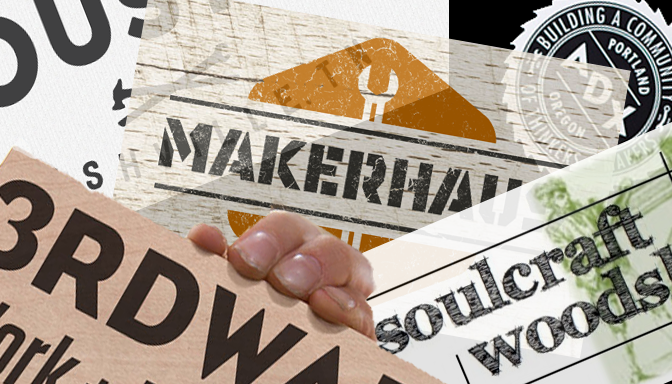
Like a lot of you, I’m a self-taught woodworker. I taught myself trim carpentry first, with the help of reference books and a whole lot of trial, error, and learning things the hard way. When you’re self-taught, and don’t have people around you who can show you the best way to do things, you inevitably develop idiosyncratic methods – some are harmlessly inefficient, and some make things much, much harder than they should be, and worse, keep you from advancing your skills.
Books, online forums, and YouTube videos are great, but they’re no replacement for having someone standing next to you showing you how they do something. Even the most advanced woodworkers benefit from having other woodworkers around to bounce ideas off. Unfortunately, for most of us, woodworking is usually a solitary pursuit.
But increasingly, depending on where you live, it doesn’t have to be. Around the country, community woodshops are springing up, giving lonely tinkerers access to active communities of fellow woodworkers — and all the great tools and equipment you wish you had.
The other day we heard from lawyer-turned-furniture maker Peter Debelak, founder of Soulcraft Woodshop in Cleveland, Ohio, which opened to the public last year. Soulcraft, according to its website, is a “community woodworking shop, educational cooperative, and gallery. Whether you’re a complete novice brimming with ideas, or whether you’re looking to launch a woodworking business, we aim to incubate your ideas and your craft!”
The model is similar to that of other community workshops around the country: Take a short orientation and shop safety certification class, sign a liability waiver, and you’re in business. You can then take classes and/or choose from a menu of membership options-from full, unrestricted shop access, down to a one-time hourly rate.
Especially if you live near a city, it’s increasingly likely that there’s a community workshop in your area. Debelak cites 3rd Ward and Makeville in NY, and Sawdust and TechShop in CA, as models for Soulcraft. But they’re not the only ones out there – there’s Fort Houston in Nashville, TN, Southside Hub in Chicago, ADX in Portland, Community Workshop in Los Angeles, The Crucible in Oakland, HammerSpace is Kansas City, MakerHaus in Seattle, Buildmore Workshop in Dublin, OH, MakerWorks in Ann Arbor, MI, and Philadelphia Woodworks in Philly. TechShop has three locations in California, and one each in Michigan, Texas, and North Carolina, with future sites planned for Arizona, Washington, DC, and Brooklyn. (I’m sure I’m missing plenty of the community workshops out there — if you know of one in your neighborhood, let me know in the comments.)
I’m sure some woodworking purists look sideways at the so-called “maker movement” (which includes many other pursuits, from machining to electronics to underwater basket weaving) as organized dilettantism. But it’s hard for me to see how this trend won’t be a net benefit for woodworking. It lowers the barriers to entry by allowing access to the shop space, tools, and machinery that can take an individual woodworker decades and tens of thousands of dollars to amass. It will create more customers for toolmakers and retailers, and it will make woodworking accessible to young people who would otherwise be shut out from pursuing what is, for most people, a prohibitively expensive hobby.
I wish there had been a place like Soulcraft in Boston when I was just wading into the shallow end of the woodworking pool. I used to drool over the North Bennet Street School course catalog and pray for a lottery miracle. A community workshop may not have instructors of that caliber, but it certainly offers a collaborative, competitive environment-which would hasten any woodworker’s development.
More from FineWoodworking.com:
- “Greatest Community Shop on the Planet?”
- Community Woodshop Opens in Philidelphia
- Workshops in the City
- FineWoodworking Forums are Back!

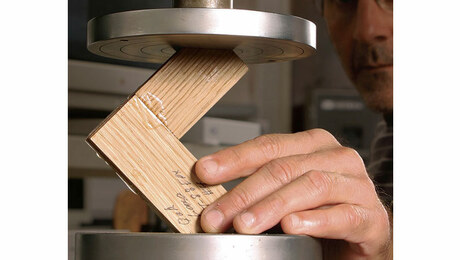

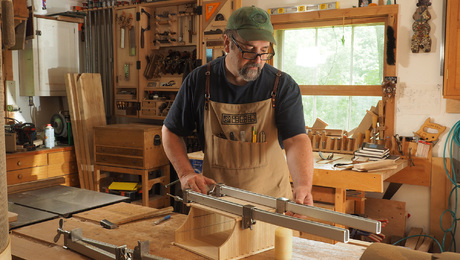
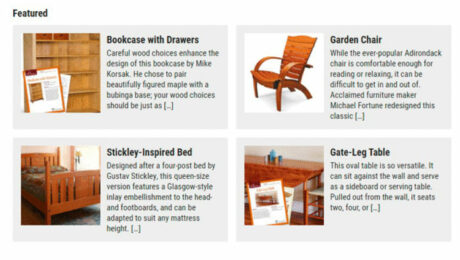


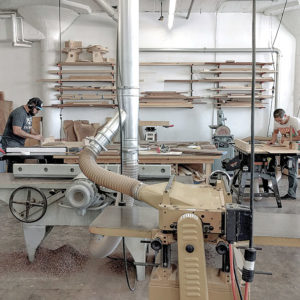










Comments
I wish Baltimore City had a community workshop. I've looked and looked for one, but there is none to be had.
Amen to that Alex! I also wish there was a local community workshop in the Baltimore area. Driving all the way the The Woodworkers Club in Rockville is not a good option, given the price of membership. As retired military, I used to use the very nice workshop on Fort George G. Meade, but it closed a couple of years ago because of "budget cuts." It still sits there, unused. What a waste!
I am a 60 yr old cabinetmaker who is interested in knowing more about starting a community workshop. This might be a perfect way to bring in extra income and not be forced to sale all my tools when it is time to retire.
Hey Chester --
You'd be surprised how little is required to get a community shop together. I got in touch with Peter from Soulcraft in part because he's a lawyer, and I had assumed you'd have to be one to get past the liability-related hurdles. I was floored to learn that their liability insurance is less than two grand a year. He did say that having a spray booth would up the premium, but it sounds to me like all you need is to have all participants take a safety course and sign a liability waiver, and you're in business.
For chester1952, and anyone else who might like to start a community woodshop or makerspace, here's a link with a LOT of information: http://www.gemsi.org/2013/03/start-a-hackerspace-diy/
The link above is from GEMSI, the Global Entrepreneurship and Maker Space Initiative. The "makerspace/hackerspace movement" has been gaining momentum since 2007 in the United States, and we've developed a lot of know-how about starting and running spaces. While the information is aimed at general-use spaces, it could of course be adapted to more specific use cases.
Please consider starting a multi-use space, though! More people means each person can pay less to maintain the space, and it's been truly wonderful to see the cross-disciplinary results of getting lots of creative people together.
Good luck!!
I look at the furniture made back in the days when men took great pride in their work. And I see it on Fine woodworking in the post I read as well, but hand made anything has been a dying trade and we need to get it back. . How true it is, Alex. I am a new woodworker. Mistakes, wow how many I make. You don't no how many times I wish the man next door was a furniture maker.If he was, it would just be easier to move in. I think in every City, for young and old a like we need a place to go to learn and build on craftsman skills that is a dying trade. Let a young person stand next to a skilled woodworker with a piece of wood in his hands and come out with something that he wanted to make, you change that persons life for ever.
I heard about a commercial grade kitchen a few years ago that operated on this idea. It held classes but also touted itself as a business incubator. The idea has stuck with me since then and I've recently begun down the rabbit hole. Most of the founders/managers of the existing shops are more than happy to share their ideas, success and regrets with you. It's a very friendly community, on the whole, and don't be afraid to ask questions of you're interested in starting something like this.
I would also agree with yarnivore that multi-use space is a great idea. Its a good way to diversify a business and, like he said, concentrating creative, motivated people will undoubtedly lead to unexpected and promising ideas. And thanks for the link.
Log in or create an account to post a comment.
Sign up Log in